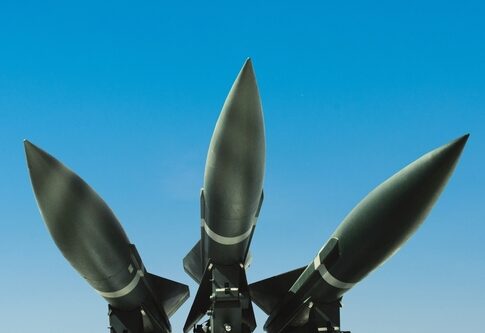Iran's top military leader, Esmail Qaani, commander of the Quds Force, reappeared on Iranian state television, quelling rumors of his death or disappearance following an Israeli airstrike in Beirut. Qaani had been missing from public view for nearly two weeks, fueling widespread speculation about his fate after the strike targeted a Hezbollah stronghold in Beirut's southern suburbs.
The Israeli airstrike, which occurred in early October, aimed at a Hezbollah command center in Dahiyeh, a key area for the Lebanese militant group. Reports suggested that Qaani was in Beirut at the time, meeting with Hezbollah officials in the wake of escalating Israeli strikes following the death of Hezbollah leader Sayyed Hassan Nasrallah in a separate Israeli operation. These airstrikes have been part of Israel’s ongoing campaign to weaken Hezbollah's military infrastructure, a critical arm of Iran’s influence in Lebanon.
While Kamala Harris is throwing the race card and white shaming, Taiwan and China are close to war, and Israel and Iran are at war.
They are evacuating the embassy in Beruit, Lebanon right now.
Harris is a POS. I said what I said.
Source: US Embassy .gov pic.twitter.com/zxZy2pSWqU
— The Constitutionalist 🇺🇸 (@WeWillBeFree24) October 14, 2024
For two weeks, there was no word from Qaani, leading to speculation that he had either been killed or seriously wounded. Some media outlets even suggested that the Iranian government was intentionally keeping his whereabouts secret, possibly due to internal suspicions of Israeli intelligence operations within Iran’s military ranks. Saudi and Israeli sources went as far as to claim that Qaani might have been killed by Iranian officials, who suspected him of leaking information to Israel’s Mossad.
During his time out of the spotlight, many Iranian officials remained tight-lipped, fueling further uncertainty. Adding to the mystery, Qaani's notable absence from significant political events, including Friday prayers led by Iran’s Supreme Leader Ayatollah Ali Khamenei, only heightened suspicions. Despite the rumors, Iran did not confirm or deny his death until Qaani reemerged on state television on October 16.
❗️🇺🇲🤝🇮🇱 – The Pentagon has announced the deployment of a Terminal High Altitude Area Defense (THAAD) battery to Israel, operated by U.S. soldiers, to strengthen Israeli defenses against potential ballistic missile attacks from Iran.
A typical THAAD battery includes 6 to 9… pic.twitter.com/JRhAzKxLp0
— 🔥🗞The Informant (@theinformant_x) October 13, 2024
Qaani has led the Quds Force since the 2020 assassination of his predecessor, Qassem Soleimani, by a U.S. drone strike in Iraq. Since then, he has been tasked with overseeing Iran’s military operations across the Middle East, focusing primarily on bolstering Tehran’s alliances with proxy militias in Iraq, Syria, and Lebanon. His disappearance had sparked concern over Iran’s broader military strategy, particularly as Hezbollah and Iranian-backed groups face mounting pressure from Israel.
Israeli intelligence has been aggressively targeting Hezbollah and other Iranian-aligned groups in recent weeks, with airstrikes that have intensified as regional tensions escalate. Beirut’s Dahiyeh district, where the airstrike occurred, is a strategic center for Hezbollah’s operations, making it a frequent target in Israel’s ongoing campaign to dismantle the group’s military capabilities.
Qaani’s disappearance also stirred fears within Iran’s military establishment that Israeli intelligence had penetrated the highest levels of Iranian operations. Some media outlets speculated that Qaani may have been interrogated internally, with one report even suggesting that he had suffered a health crisis during such questioning. However, Iranian officials have categorically denied these claims, insisting that Qaani is in good health and actively fulfilling his duties.
His recent reappearance, however, does little to ease concerns about the extent of Israeli influence and intelligence capabilities in the region. As Israel continues its strikes and Tehran maintains its military operations, the geopolitical landscape remains volatile, with no sign of de-escalation between Iran and its adversaries.

